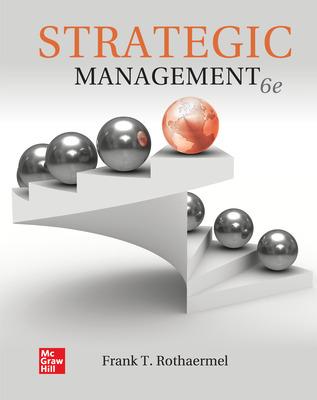1. Detail the roles that Chick-fil-As structure, culture, and control play in the companys achieving a competitive...
Question:
1. Detail the roles that Chick-fil-A’s structure, culture, and control play in the company’s achieving a competitive advantage. Which components are most important? Or, is the interplay of the elements an integrated system that forms the basis of the company’s competitive advantage?
2. Do you agree with the author’s thesis that Chick-fil-A’s structure, culture, and control form the basis of the company’s competitive advantage? Why or why not? Or, are other things such as the secret recipe for the classic chicken sandwich and the food quality more important in explaining Chick-fil-A’s success? Discuss.
3. Chick-fil-A is a privately owned family business. As such, its strategic leaders have more degrees of freedom in the way they run the business (e.g., not opening on Sundays). Yet, being privately owned limits access to capital because all growth must be financed through retained earnings. Self-financing results in a slower pace of expansion. Should Chick-fil-A consider going public by issuing stock? An initial public offering would provide access to vast financial resources to fuel expansion domestically and internationally. Faster growth can allow for first-mover advantages by locking up the most desirable locations, suppliers, and so on. Some critics argue that Chick-fil-A should go public because more people can participate in the company’s success, and the purpose-driven company can “bless more lives.” Discuss the pros and cons of Chick-fil-A’s ownership structure and the implications if the company were to go public.
4. This Mini Case indicates that strong corporate cultures are often a plus but can have downsides. Chick-fil-A created controversy with its giving policies (now changed) and statements by its then-CEO. As a strategic leader, what can you do to develop a robust corporate culture while not conflicting with societal values? Also, did it surprise you that the Chick-fil-A boycotts turned into a “buycott” (i.e., the company’s sales rose)? Why or why not? Explain.
5. Given its popularity, Chick-fil-A will eventually reach maturity in the United States. Although Chick-fil-A’s distinctive culture and approach traveled well beyond Georgia, can it succeed outside the United States? Do you think its unique culture, structure, and control are suitable for international expansion? Why or why not? Explain.
Step by Step Answer:






